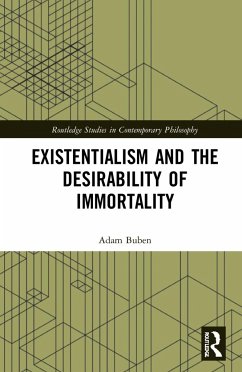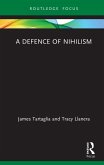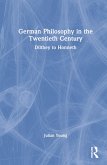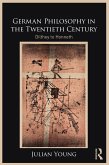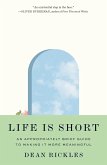This book looks to existential thinkers for reasons to hope immortal life could be worth living. It injects new arguments and insights into the debate about the desirability of immortality, and tackles related issues such as boredom, personal identity, technological progress, and the meaning of life.
Immortality, in some form or another, is a common topic throughout the history of philosophy, but many thinkers who consider its possibility (or necessity) give little attention to the question of whether it would be worthwhile. Recent work on the topic has been dominated by transhumanists in pursuit of radical life extension, and philosophers from the analytic tradition who argue about the dangers of immortality. This book makes the case that continental thinkers-including Søren Kierkegaard, Friedrich Nietzsche, Miguel de Unamuno, Martin Heidegger, Jean-Paul Sartre, Albert Camus, and Simone de Beauvoir-have much to offer the debate on immortality. For most of these figures, it seems possible that an unending life would not preclude the preservation of personal identity or the sorts of dangers and deadlines required to maintain something like ordinary human values and fend off boredom. The author draws connections between these so-called "existentialists" and demonstrates how they contribute to an overarching argument about the desirability of immortality.
Existentialism and the Desirability of Immortality will be of interest to researchers and advanced students working on the philosophy of death and the history of existentialism.
Immortality, in some form or another, is a common topic throughout the history of philosophy, but many thinkers who consider its possibility (or necessity) give little attention to the question of whether it would be worthwhile. Recent work on the topic has been dominated by transhumanists in pursuit of radical life extension, and philosophers from the analytic tradition who argue about the dangers of immortality. This book makes the case that continental thinkers-including Søren Kierkegaard, Friedrich Nietzsche, Miguel de Unamuno, Martin Heidegger, Jean-Paul Sartre, Albert Camus, and Simone de Beauvoir-have much to offer the debate on immortality. For most of these figures, it seems possible that an unending life would not preclude the preservation of personal identity or the sorts of dangers and deadlines required to maintain something like ordinary human values and fend off boredom. The author draws connections between these so-called "existentialists" and demonstrates how they contribute to an overarching argument about the desirability of immortality.
Existentialism and the Desirability of Immortality will be of interest to researchers and advanced students working on the philosophy of death and the history of existentialism.
"This book is clear, careful, and sometimes personal and especially poignant. It is essential reading for scholars interested in death and immortality, and it is accessible enough to use in undergraduate teaching. Buben is well-versed in the analytic philosophical literature on death and immortality as well as in the existentialist tradition, and his writing is accessible even for readers without a background in continental philosophy. I highly recommend this book."
Taylor Cyr, Samford University, USA
"[Buben has] offered an impeccable treatment of the reflection conducted by outstanding existentialists on the desirability of immortality. He [has] attempted to find a synergy between the analytic tradition and the continental one, a synergy which can help us deal with the current interest of science and technology in the achievement of immortality. Finally, he [uses] a rigorous methodology, which the reader can immediately appreciate as soon as she picks up the book."
Roberto Di Ceglie in Human Studies
Taylor Cyr, Samford University, USA
"[Buben has] offered an impeccable treatment of the reflection conducted by outstanding existentialists on the desirability of immortality. He [has] attempted to find a synergy between the analytic tradition and the continental one, a synergy which can help us deal with the current interest of science and technology in the achievement of immortality. Finally, he [uses] a rigorous methodology, which the reader can immediately appreciate as soon as she picks up the book."
Roberto Di Ceglie in Human Studies

